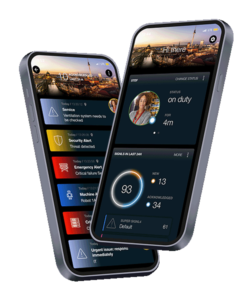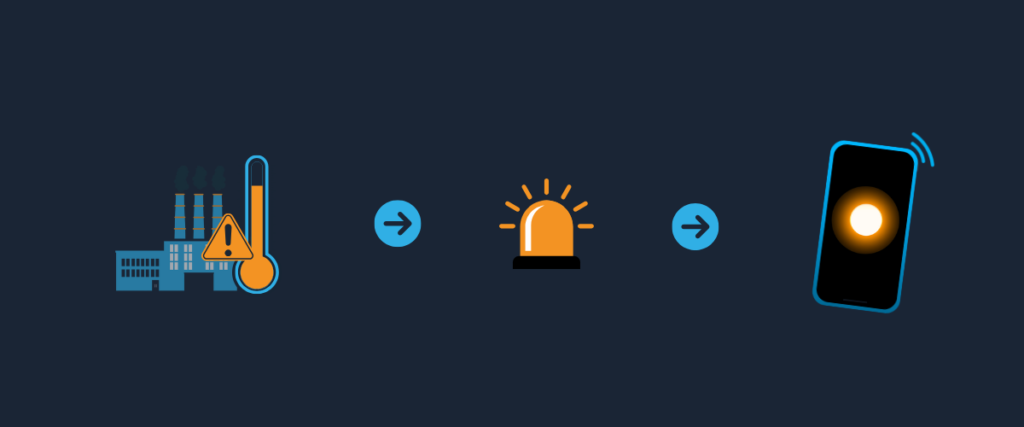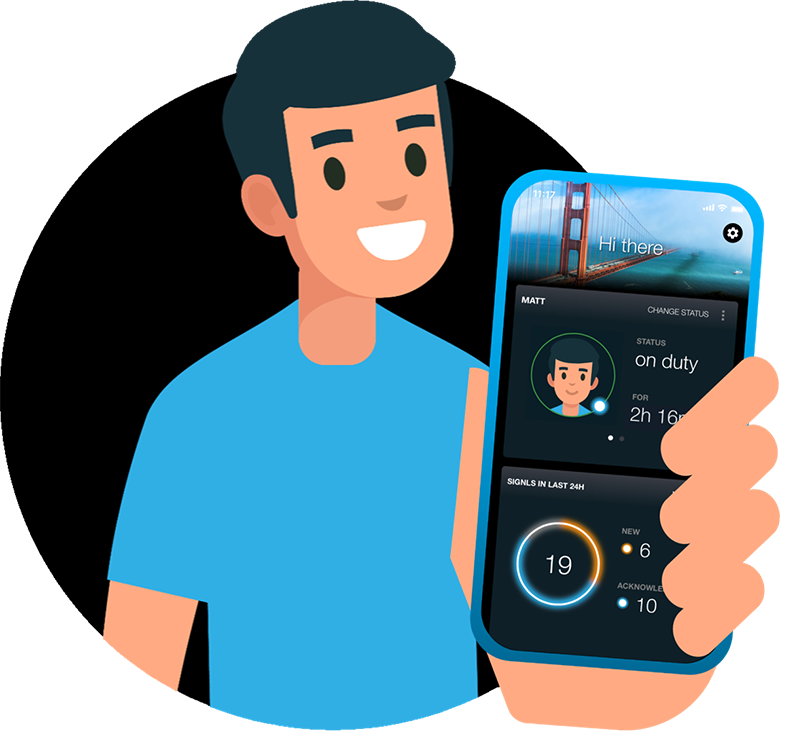In the fast-paced world of IT, having a reliable IT alerting software is crucial to ensure swift issue resolution and minimal downtime. The right IT alerting software not only notifies you of critical incidents but also ensures that your team is equipped with tools to respond promptly and effectively. For 2025, we’ve evaluated the top IT alerting software based on features, usability, and a strong focus on mobile app capabilities. A powerful and user-friendly mobile app for IT alert management plays an increasingly important role for such an overall IT alerting software. Here are the five best options for 2025:
1. SIGNL4: A Mobile-First Approach to IT Alerting Software
SIGNL4 is at the forefront of IT alerting software, offering a mobile-first platform designed for on-the-go professionals. SIGNL4 focuses on super-fast real-time notifications and a new visual approach to handle critical alerts on-the-go. It impresses with a user-friendly interface, fast, customizable push notifications and a very intuitive design for alarm management on the move.
Key Features:

- Customization: SIGNL4 offers extensive capabilities to customize alarm notifications via push, SMS, call and email. This includes the alarm sequence, alarm sounds and also the display of alarms with colors and icons.
- Silent mode override: Even if the smartphone is muted, the alerting app plays alerts out loud so that critical notifications are not missed.
- Duty and shift management: Teams can efficiently organize shifts in the alerting app and ensure that the right person is always available and receives the right alerts at the right time.
- Integration capability: SIGNL4 can be seamlessly connected to other systems such as IoT devices, IT systems or monitoring platforms. Over 175+ systems have been tested and verified.
- Team chat: Enables quick coordination within teams, complemented by availability feedback functions.
Why SIGNL4 Stands Out:
SIGNL4’s mobile app is its defining feature. Unlike many competitors that simply port desktop functionality to mobile devices, SIGNL4’s app is purpose-built for mobile users. With an intuitive interface, it allows users to manage incidents, update statuses, and collaborate in real time without needing a desktop.
SIGNL4 is particularly suitable for operational alerting from technical systems with a focus on meaningful alarms, on-call and availability management as well as seamless integration into technical systems to enable automated alerting.
2. PagerDuty: A Robust Enterprise Solution
PagerDuty is a veteran in IT alerting software, known for its comprehensive suite of features for large enterprises. Its mobile app offers a reliable way to stay connected, even when away from the office.
Key Features:
- Event Intelligence: Advanced analytics to prioritize alerts based on severity and context.
- Flexible Escalations: Customize escalation paths to suit team structures.
- Mobile Command Center: Resolve incidents directly from the mobile app.
What Makes It Unique:
While PagerDuty offers a robust mobile app, its interface is more feature-dense, which can be overwhelming for smaller teams or casual users. It excels in providing enterprise-grade tools for large-scale operations but might be pretty broad for a pure IT alerting software.
3. Opsgenie by Atlassian: Seamless Integration for DevOps
Opsgenie is a favorite among DevOps teams, thanks to its integration with Atlassian tools like Jira and Confluence. It offers a modern IT alerting software tailored for professionals managing multiple workflows.
Key Features:
- Integration with Atlassian Ecosystem: Sync incidents with Jira for streamlined ticket management.
- On-Call Management: Create and manage on-call schedules effortlessly.
- Incident Collaboration: Use chat and conferencing tools to coordinate responses.
Mobile Experience:
Opsgenie’s mobile app is polished but leans heavily on integration with its web counterpart. While functional, some advanced configurations require desktop access, making it less agile than SIGNL4 for mobile-first users.
4. Splunk On-Call: Focused on Collaboration
Splunk On-Call, formerly VictorOps, focuses on incident collaboration and post-incident reporting and embedded into Splunk. Its mobile app is a vital tool for team communication during IT emergencies.
Key Features:
- Real-Time Collaboration: Annotate incidents with rich media and collaborate directly within the app.
- Post-Incident Analysis: Generate detailed reports to improve future responses.
- Customizable Alerts: Tailor notifications to reduce alert fatigue.
Mobile Capabilities:
Splunk On-Call offers a balanced mobile experience, with robust collaboration tools. However, its interface can feel dated compared to modern apps like SIGNL4 or Opsgenie/Atlassian.
5. xMatters: Bridging IT Alerting and Business Communications
xMatters offers a unique approach by bridging IT incident management with business communications. Its mobile app caters to teams needing cross-departmental coordination.
Key Features:
- Contextual Alerts: Alerts are enriched with incident context for better decision-making.
- Workflow Automation: Trigger workflows directly from alerts.
- Integration Hub: Connects seamlessly with hundreds of tools, including Slack and ServiceNow.
Mobile Strengths:
xMatters provides a user-friendly mobile app that emphasizes collaboration between IT and business teams. While it’s versatile, its mobile interface lacks the specialized focus that SIGNL4 brings to IT-specific scenarios.
How to Choose the right IT Alerting Software
The following points should be considered when selecting the right solution:
- Reliability and speed of alerting: How quickly and reliably are the alerts delivered?
- Multi-channel alerting: Are various communication channels such as push notifications, SMS, email and phone calls supported?
- Feedback functions: Can recipients provide feedback and can this be viewed in real time?
- Ease of use: Is the app intuitive to use and does it require minimal training?
- Integration into existing systems: Can the app be integrated into existing systems such as fire alarm systems or other systems? And above all – how easy is it?
- Data protection and security: How is personal data handled and does the app comply with the applicable data protection guidelines?
- Specific functions: Does the app offer the right functions for the intended use, e.g. attendance registration, duty roster management, duty group management or transmission masks with templates?

Here are a few recommendation considering the listed top 5:
- Mobile-First Approach: Operations teams that work remotely and embrace the use of an advanced and powerful mobile app should prioritize a solution like SIGNL4.
- Enterprise-Grade Features: Larger organizations may benefit from the advanced analytics and customization of PagerDuty or Opsgenie.
- General Communications: If a more general approach and enterprise communication capabilities are required, xMatters is strong contender.
Final Thoughts on IT Alerting Software
For 2025, IT alerting software is evolving to meet the growing demand for faster, more reliable IT operations and incident management. While each solution on this list has its strengths, SIGNL4 stands out as the best choice for teams prioritizing mobility, simplicity, real-time response and the benefits of a modern and powerful mobile app . Evaluate these options based on your team’s size, workflows, and response requirements to find the perfect fit for your IT alerting needs.


